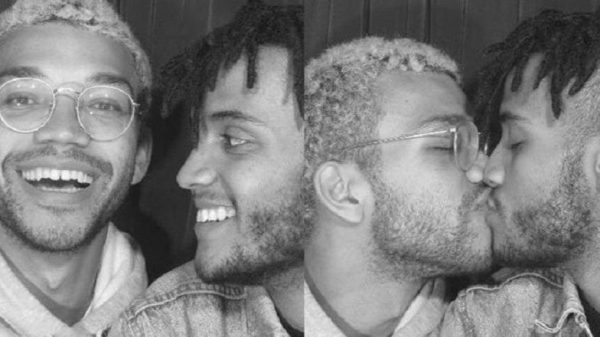Black queer activists have always had to deal with a peculiar complex.
Take for instance Black Lives Matter’s DeRay McKesson. He’s one of the most visible faces of the movement featured in dozens of publications from Huffington Post to Fast Company. He has literally put his life on the line to stop injustice. He was jailed in Baton Rouge for protesting after the death of Alton Sterling. He’s on the frontlines of the modern civil rights struggle every day.
Yet there are still many black people in America who refuse to acknowledge his contribution because he’s gay. It seems the fight for equality is limited to heterosexual black people only. Race and sexual identity are mutually exclusive. Of course, those who don’t accept McKesson don’t fall in line with BLM, as it’s a queer-affirming organization. But he’s not the first civil rights public figure to face discrimination from within the movement he represents.
Bayard Rustin is a pioneer in many ways.
From 1955 to 1968, he was the chief strategist of the Civil Rights Movement. He was the one responsible for organizing the historic 1963 March on Washington. He even helped develop a young stable of rising activists including Stokley Carmichael and Tom Kahn. He was welcomed, acknowledged and loved by Martin Luther King, Jr. and his family. Throughout his professional dealings with King, he organized conferences to help boost King’s profile and shared his beliefs in nonviolent protesting.
It’s safe to say that, without Bayard Rustin, the Civil Rights Movement may not have been as big as it was. He was a key player behind the scenes. While strong talent is always needed off to the side, it seems Rustin was pushed there for other reasons beyond his strategic skill.
As a gay man existing in the world long before marriage equality and LGBTQ protections, he was judged by his fellow activists and the authorities. He was arrested in 1953, charged with performing illegal homosexual acts. People within the movement said his sexuality was a distraction from their greater purpose—that it stopped him from being an effective leader.
Rustin had also identified as a Communist in the 1940s. This landed him on an FBI watchlist. So, despite his promise and capability, it was never fully realized within the scope of the Civil Rights Movement. He had to lay low to pacify those who didn’t accept him and to avoid becoming a target of the law.
For all the brave work he was doing, Rustin deserved more. He brought his energy to LGBTQ causes in the 80s. However, he passed away in 1987. In 2013, he was posthumously awarded a Presidential Medal of Freedom—a final proper acknowledgment of his contribution.
When we look back at photos of the Civil Rights era, Rustin was there. Standing beside Dr. King. Posting a sign for the March on Washington. Hoisted on the cover of LIFE magazine. He was there, even though there were many who didn’t want him there.
Rustin’s story is inspiring—a true example of commitment and dedication to a cause. He continued to fight in the face of adversity on all sides. Today, McKesson’s battle is reminiscent of this early story.
Rustin wasn’t recognized until after his death. We don’t have to allow history to repeat itself with McKesson. We can all let him know that he’s accepted and appreciated now.
As we move forward into an especially poignant Black History Month, it’s important for our allies and friends to remember that we’re part of Black History, too. Bayard Rustin was a civil rights mastermind who got his due too late. Let’s pay tribute to him now, and today, let’s recognize those who are fighting the good fight—regardless of who they love.

